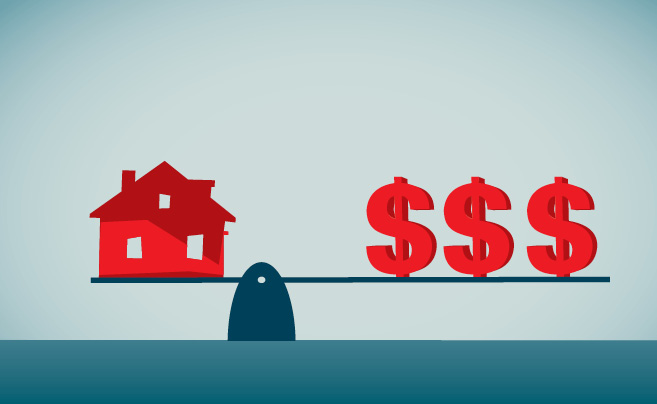A long-term investment
Investing in property is a long-term wealth creation strategy. Like equity, property markets also undergo fluctuations, but it is not possible to sell a part of your investment property in case you need cash. Do not put all your eggs in one nest and work towards building a diverse investment portfolio.
Remember, buying property is not a one-time investment; there are maintenance and running costs associated with holding a property. Plus, it is important to keep it tenant-worthy to ensure a steady rental income.
The longer you can hold on to your investment properties, the more equity you can build to create a larger portfolio. Do not buy to sell for profit immediately, buy to invest.
Property research
As always, there’s no way around this one. It is important to research before investing in property. Choose an area with strong capital growth, family-friendly infrastructure and good rental yield (CoreLogic RP data is a good source) to ensure a positive cash flow from your property.
In case the rental yield for your property happens to be lower than the cost of maintaining the property, tax and depreciation deductions can help maintain a positive cash flow. But do not make the folly of using negative gearing as a wealth creation strategy, it is only a way to minimise your losses. A savvy investor is always on a lookout for a positively geared property.
Seek professional help
Being an expert in your profession, you’d definitely agree on the value of professional advice. With a property market booming with houses, auctions and loan deals, it can be quite time consuming to charter the investment journey alone. To find the right deal at the best rates in least time, seek help from an expert mortgage broker.
While you are at it, it helps to have a professional to inspect the building for structural flaws and pests as well.
Once you own an investment property, it is advisable to hire a property manager to take care of your property, tenants and rentals. This will save you considerable amount of stress, of which we are sure you already have too much at work.
Proper insurance cover
The right insurance cover is most important to keep your investment safe. Apart from a simple home and contents insurance, do not forget to take landlords’ insurance cover for protection against incidental or malicious damage caused by tenants. A licensed insurance broker (all insurance brokers must be licensed by Australian Financial Services) can guide you with the best options for your situation.
Using equity
It can be wise to use equity in your existing home for investing in another property, without having to pay any deposit or accessory costs. It is possible to use up to 80% of equity for investing in property.
The only catch here is that the equity you use from your existing home for buying an investment property is tax deductible, but your remaining home loan (the existing one) may not be. Thus, it pays to clear off your existing home loan faster.







